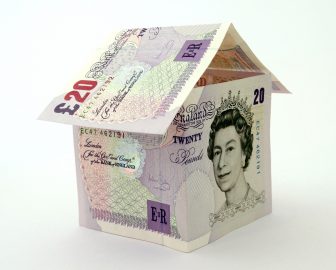 Even when adjusting for inflation, today’s homebuyers have by far the toughest financial task when it comes to housing affordability, with house prices sitting at 8.8 times the average earnings.
Even when adjusting for inflation, today’s homebuyers have by far the toughest financial task when it comes to housing affordability, with house prices sitting at 8.8 times the average earnings.
Research by House Buyer Bureau shows the discrepancy between average earnings and house prices has more than doubled since the 1970s.
The analysis found that the average house price throughout the 1970s sat at just £9,277, the equivalent of £68,493 today after adjusting for inflation.
Although the average home may have been significantly more affordable when compared to the current market, the average earnings was also far lower at £2,265, or £16,723 after adjusting for inflation. As a result, the average home during the 70s required 4.1 times income.
While this climbed to 4.2 times income in the 1980s, it actually fell to just four times income during the 90s, making it the most affordable decade since the 1970s in which to climb the property ladder.
However, this ratio of property affordability has been on the rise ever since, increasing considerably during the 2000s, with house prices requiring 6.4 times income during the first decade of the new millennium and hitting 7.1 in the decade that followed.
As it stands in the current market, homebuyers have never had a harder task when looking to climb the ladder.
So far this decade, the average house price has hit £286,489, 318% higher than the average seen throughout the 70s. While average earnings have also increased to £32,432, this marks just a 94% increase in earnings.
As a result, the average homebuyer today requires 8.8 times income to cover the cost of a home, with this income to house price ratio more than doubling since the 1970s (+4.7).
Chris Hodgkinson, managing director of House Buyer Bureau, commented: “You have to feel for today’s homebuyers who have seen house prices explode over the last decade or two, in particular, while the earnings on offer to them have failed to keep pace.
“As a result, they require over double the level of income to cover the cost of a home compared to their previous counterparts looking to purchase back in the 70s.
“As if this wasn’t bad enough, they’ve been further squeezed by high levels of inflation and the cost of living crisis in recent months and, as a result, are now paying through the teeth when looking to secure a mortgage due to interest rates hitting 5%.”


Comments are closed.